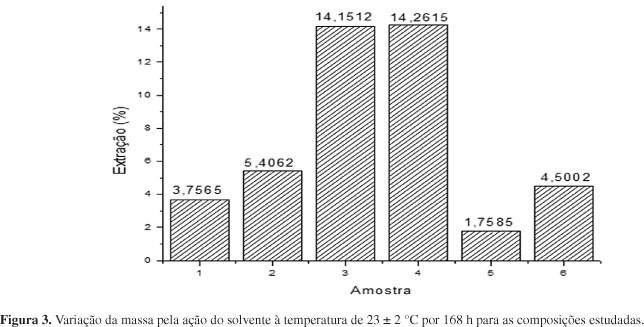The accumulation of polymeric waste in the environment has increased in recent years and landfills are already saturated with plastic waste, with an estimated production of ~25,000 t of solid plastic waste per day in Brazil, based on data for 2008. In this report, we describe a comparative analysis of the biodegradation of PVC compounds containing a renewable vegetable-derived plasticizer (RVP) with ester structure of corn and molar mass 296.5 g.mol- 1, or one of two synthetic plasticizers (dioctyl phthalate - DOP and dioctyl adipate - DOA). FTIR showed a greater interaction of RVP with the PVC resin at a content of 30 phr compared to the two synthetic plasticizers. In contrast, at 40 phr, the plasticizers DOP and RVP showed the same variation in the atactic band. Mechanical tests reinforced the results of FTIR by showing greater compatibility for compositions containing RVP. Thermogravimetric analysis showed that PVC compounds containing DOA at 40 phr were thermostable, as were compounds containing RVP at 30 and 40 phr. NMR confirmed the influence of the plasticizers on thermal stability. Compared to other combinations, samples plasticized with DOA showed significant loss of mass in tests of resistance to solvent extraction and biodegradation in simulated soil. These results demonstrate that RVP is compatible with PVC and suggest that this plasticizer could be a useful substitute for synthetic plasticizers in PVC-based products.
PVC; natural plasticizer; FTIR; mechanical properties; DSC; TGA; RMN ¹H; biodegradation















